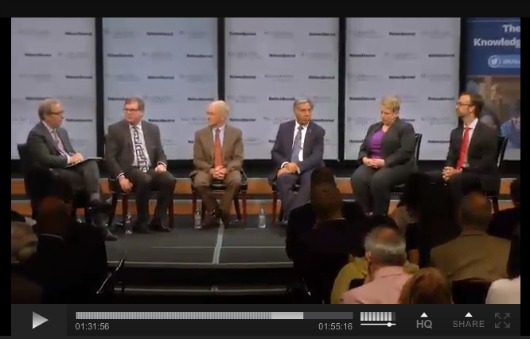
At the invitation of the National Journal, five leading experts including President Mohammad Qayoumi met in Washington, D.C., July 10 to discuss “The New Knowledge Economy.”
What is the future of the college degree, and higher education in general, in the United States?
At the invitation of the National Journal, five leading experts including President Mohammad Qayoumi met in Washington, D.C., July 10 to discuss “The New Knowledge Economy.”
Qayoumi described his vision for higher education, which includes standardizing 25 to 30 lower-level introductory courses and then customizing upper-level coursework with a range of hybrid and hands-on learning experiences.
The president’s proposal “has a lot of promise,” said fellow panelist Kevin Carey, director of the Education Policy Program at the New America Foundation. “I think this is a near-term thing … that will be the standard for the first couple years of the undergraduate experience.”
But some things would remain the same. “Nothing can really replace the campus experience,” Qayoumi said, adding that “I firmly believe faculty will still be a central part of the learning process.”
The president went on to discuss how offering standardized lower-level classes online will mean “some students who are very motivated could possibly do a year or more of their college work while they’re still in high school.”
Online learning also offers international experiences, Qayoumi said, explaining how a project could include “a group of students … one from Shanghai, one from Boston, one from San Francisco, and the fourth from Egypt. This kind of an environment is going to prepare students for tomorrow.”
Read the president’s white paper, “Are We Innovation-Ready: A Bold New Model for Higher Education.”

